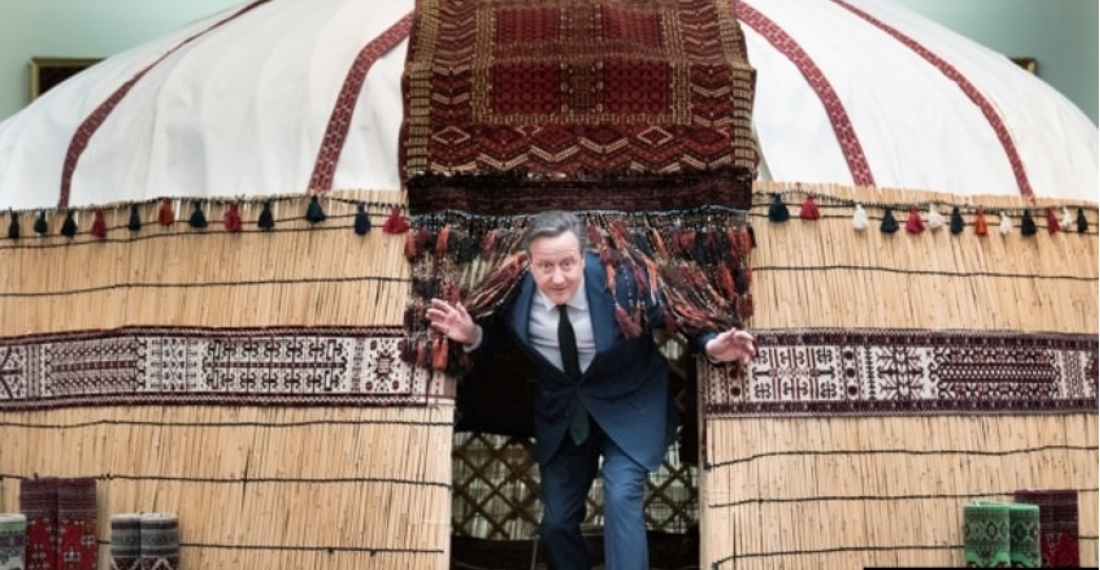UK Foreign Secretary, Lord Cameron, conducted a whirlwind tour of the five Central Asian countries and Mongolia in the last days, visiting countries that had never before been visited by a British Foreign Secretary. There is very little you can do on a trip like this when you are in a country for one day, sometimes for a few hours. But this visit was well prepared and was part of a well-thought-through British strategy to engage with Central Asia.
Britain has economic interests in the region, primarily through investment in energy. Normally a British minister will go to Kazakhstan, and perhaps Uzbekistan, but this week Cameron became the first foreign secretary to visit Kyrgyzstan, Tajikistan and Turkmenistan.
Britain wants to encourage the Central Asian republics to distance themselves from Moscow. What it has to offer is modest, but there are still areas where it excels and in which the countries of the region have interest. One such area is education, where the UK still has centres of excellence. In Kazakhstan Lord Cameron’s visit was an opportunity to seal a deal between Oxford University and the Government of Kazakhstan on the study and teaching of the Kazakh language.
Lord Cameron did not have much cash to disburse on his Central Asian trip - a 50 million pound ($62 million) commitment in assistance from Britain, and conversations in the region on human rights and democratic governance, were inevitably awkward, but there are other things that Britain has and that the countries of the region value. The British charm offensive was therefore timely and useful.






